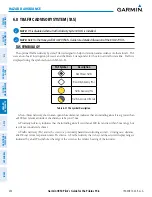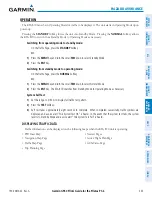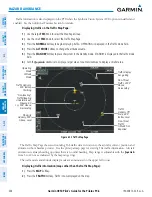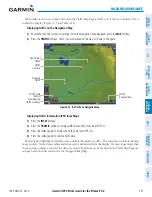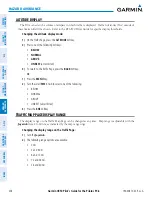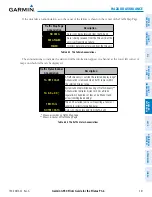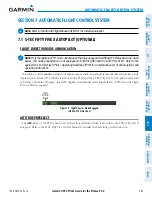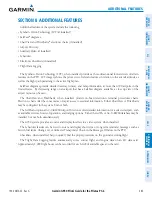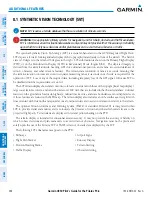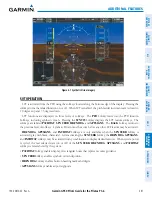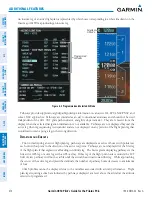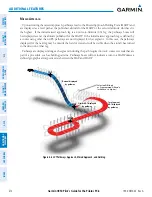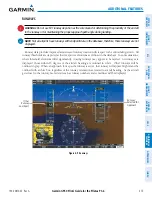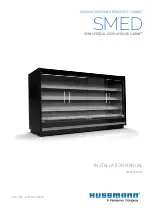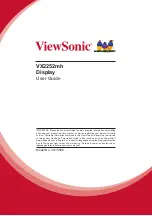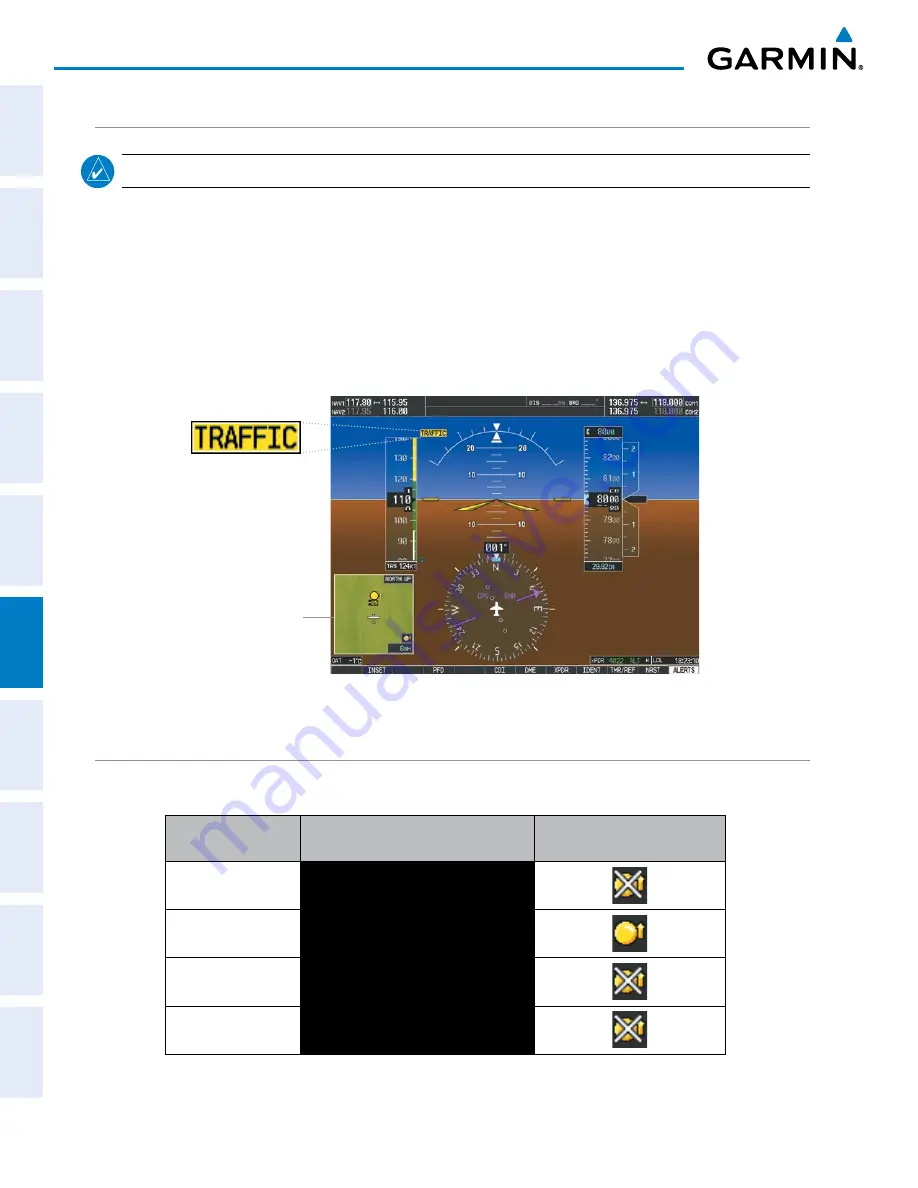
Garmin G950 Pilot’s Guide for the Pilatus PC-6
190-00870-02 Rev. A
360
HAZARD AVOIDANCE
SY
STEM
O
VER
VIEW
FLIGHT
INSTRUMENTS
EIS
AUDIO P
ANEL
& CNS
FLIGHT
MANA
GEMENT
HAZARD
AV
OID
ANCE
AFCS
ADDITIONAL FEA
TURES
APPENDICES
INDEX
TAS ALERTS
NOTE:
Refer to the KTA 870 documentation for information on alerts generated by the TAS equipment.
When the number of TAs on the Traffic Map Page increases from one scan to the next, the following occur:
• A
“Traffic, Traffic”
voice alert is generated when the first TA is displayed.
• A TRAFFIC Annunciation appears at the top right of the airspeed on the PFD, flashing for 5 seconds and
remains displayed until no TAs are detected in the area.
• The PFD Inset Map is automatically displayed with TA traffic.
• A single
“Traffic”
voice alert is generated when the number of TAs increases while a previous TA remains
active.
Figure 6-77 Traffic Annunciation (PFD)
Inset Map
Displays When
TA is Detected
SYSTEM STATUS
The traffic mode is annunciated in the upper left corner of the Traffic Map Page.
Mode
Traffic Mode Annunciation
(Traffic Map Page)
Traffic Display Status Icon
(Other Maps)
TAS Self-test Initiated
TEST
(also shown in white in center of page)
TAS Operating
OPERATING
TAS Standby
STANDBY
(also shown in white in center of page)
TAS Failed*
FAIL
* See Table 6-23 for additional failure annunciations
Table 6-22 TAS Modes









